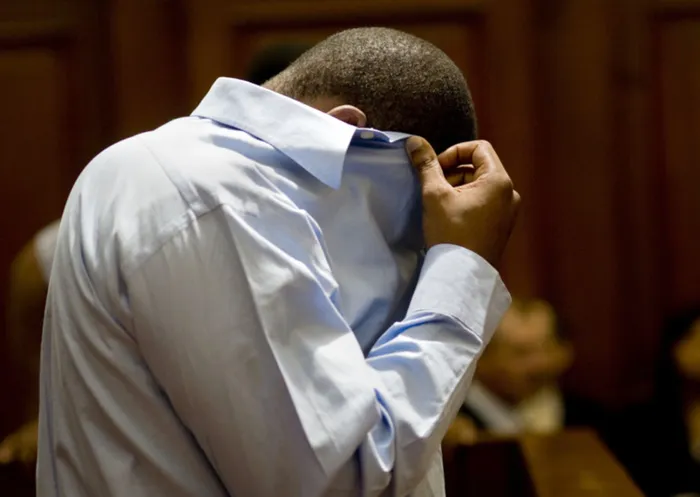Shrien Dewani and Morne Harmse: Hammer blows to SA’s already battered justice system

Zola Robert Tongo bows his head and shields his face from photographers while in the dock in the Western Cape High Court. Picture: Michael Walker
Editorial
Johannesburg - Eleven years ago, Zola Tongo gunned down Anni Dewani in Cape Town. He told the court that he’d been paid R15 000 by her husband, Shrien, to murder his bride.
Shrien Dewani was extradited to South Africa and tried. He was acquitted on all charges. Tongo contracted Xolile Mngeni and Mziwamadoda Qwabe to do the killing. They were all jailed. Mngeni later died of brain cancer.
Tongo was sentenced to sit behind bars until June 2028. Yesterday his bid for parole was granted. He will be released on July 21.
Earlier this week, it emerged that Morne Harmse had been released on parole. Dubbed the Samurai killer because he slashed a school mate to death with a sword and maimed three others in Krugersdorp in 2008, he had been sentenced to be jailed until March 2029.
What was particularly galling in this case was that the decision was made without letting his victims’ relatives know. The parole board also ignored a psychologist’s report arguing against his release as well as Harmse’s anti-social behaviour on the inside.
Both cases are hammer blows to the perception of our already battered justice system.
It is hard enough to have criminals brought to book; arrested, successfully prosecuted and jailed in the first place. To have them then released on parole because they have ticked the necessary administrative boxes makes a mockery of the entire process.
These two cases were highly publicised, but how many other criminals are released on parole after serving a fraction of their sentences? How many are released on parole only to re-offend?
The war on crime cannot be won if every single component of the justice process does not work in concert. And if winning the war on crime appears impossible, ordinary people will take the law into their own hands to see justice done.
We cannot afford that.
Related Topics: